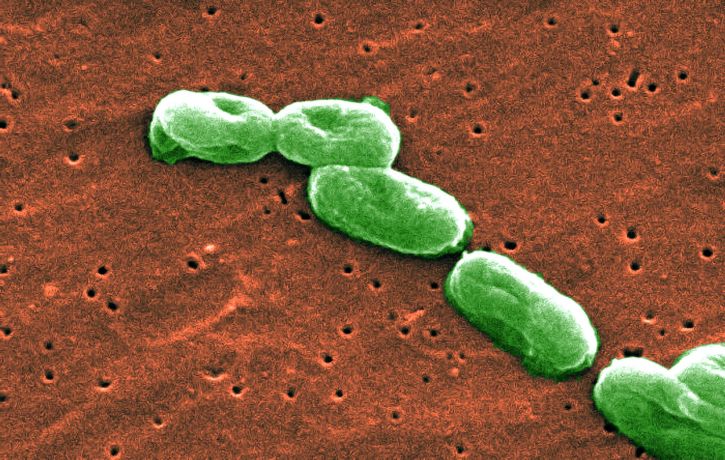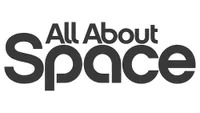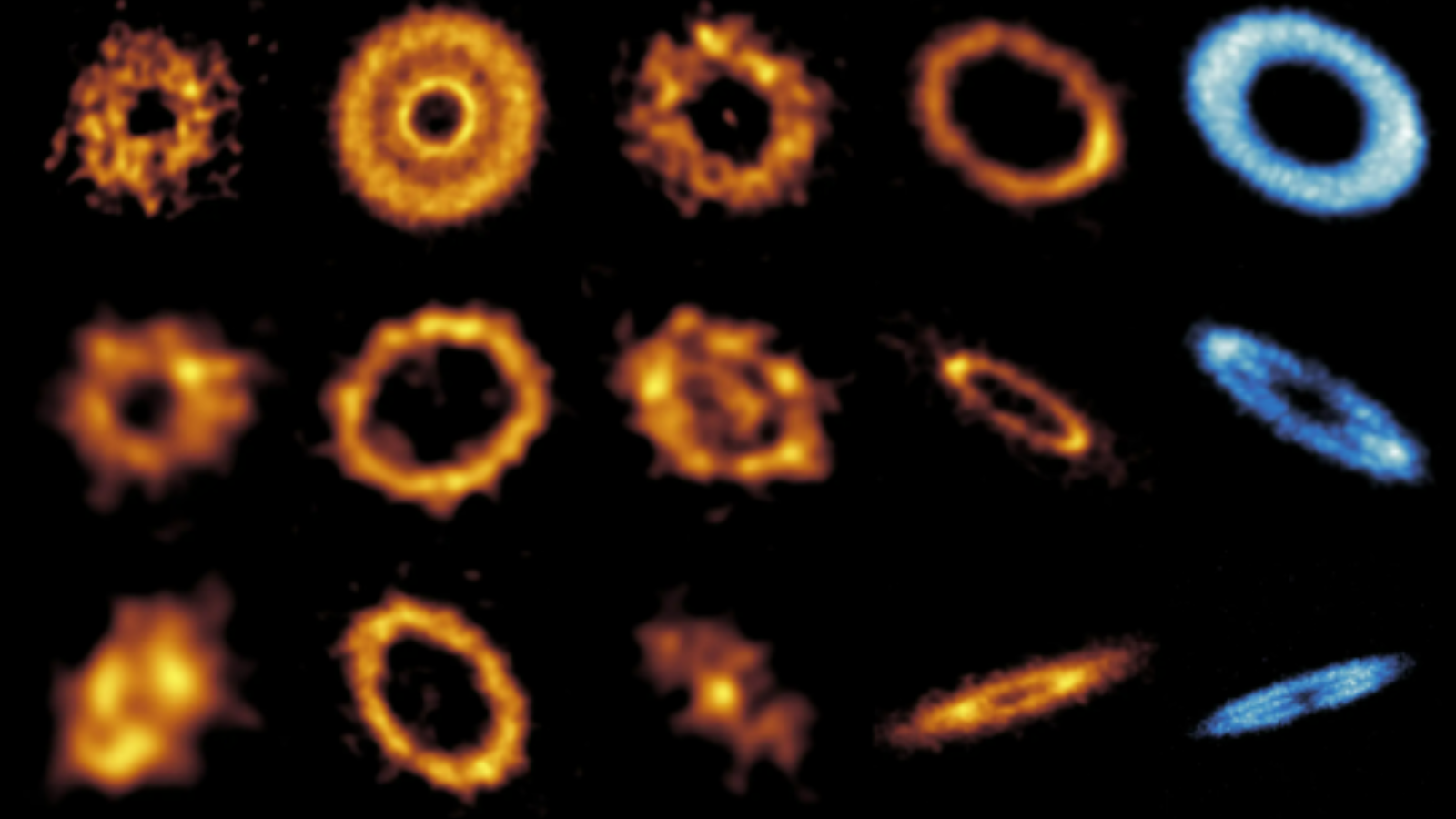Tenacious bacteria flourish on space station, but they're no more dangerous than Earth bugs

It turns out that bacteria contaminating the drinking water on the International Space Station aren't any more dangerous than bacteria here on Earth.
Bacteria have flourished in space, growing in the potable water dispenser on the space station. But the two species of bacteria thriving in this dispenser aren't any more harmful than closely related microbes here on Earth, a new study has found.
In 2009, NASA installed the water dispenser on the space station, but soon after, samples taken from the device showed that bacteria had taken up residence in the water. The two strains of bacteria — Burkholderia cepacia and Burkholderia contaminans — contaminated not only the dispenser, but the drinking water itself.
Related: Astronauts Identify Mystery Microbes in Space for the 1st Time
These space microbes are part of a group of related Burkholderia bacteria species which, on Earth, have caused lung infections and have been particularly difficult to kill using traditional techniques. While astronauts on the space station have regularly flushed the dispenser with an extra-strength cleaning solution, bacteria have remained on the device, according to a statement.
Researchers in this new study, who sequenced the genomes of bacterial strains collected from the dispenser from 2010 to 2014, found that all of the B. cepacia and B. contaminans bacterial strains were very similar and most likely came from bacteria that were on the device before it launched to space.
In the study, the researchers found that the bacteria living on the space station were no more dangerous than similar microbes on Earth, and if an astronaut were to get a bacterial infection from these microbes on the dispenser, it would be treatable with antibiotics, according to the statement.
Breaking space news, the latest updates on rocket launches, skywatching events and more!
"Based on the information presented here, it seems likely that the two populations of Burkholderia present in the ISS PWS are not more virulent than those that might be encountered on planet," the researchers said in the study.
The work was detailed in a study published Feb. 19 in the journal PLOS ONE.
- Super Space Germs Could Threaten Astronauts
- Moon Microbe Mystery Finally Solved
- How to Keep Spacesuits Germ-Free on Mars
Follow Chelsea Gohd on Twitter @chelsea_gohd. Follow us on Twitter @Spacedotcom and on Facebook.
OFFER: Save at least 56% with our latest magazine deal!
All About Space magazine takes you on an awe-inspiring journey through our solar system and beyond, from the amazing technology and spacecraft that enables humanity to venture into orbit, to the complexities of space science.

Chelsea “Foxanne” Gohd joined Space.com in 2018 and is now a Senior Writer, writing about everything from climate change to planetary science and human spaceflight in both articles and on-camera in videos. With a degree in Public Health and biological sciences, Chelsea has written and worked for institutions including the American Museum of Natural History, Scientific American, Discover Magazine Blog, Astronomy Magazine and Live Science. When not writing, editing or filming something space-y, Chelsea "Foxanne" Gohd is writing music and performing as Foxanne, even launching a song to space in 2021 with Inspiration4. You can follow her on Twitter @chelsea_gohd and @foxannemusic.

